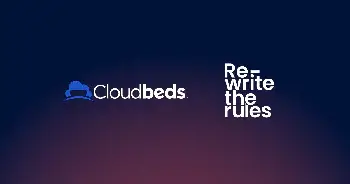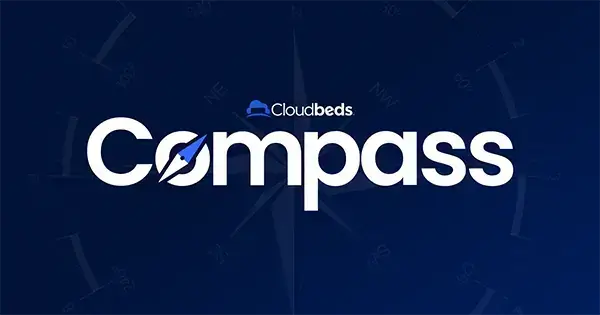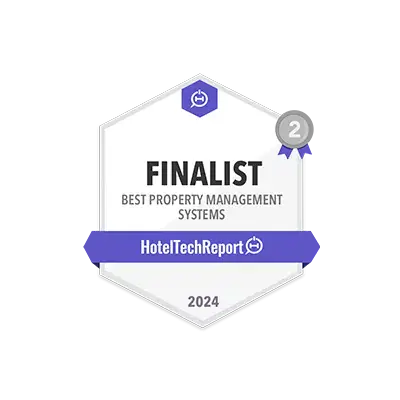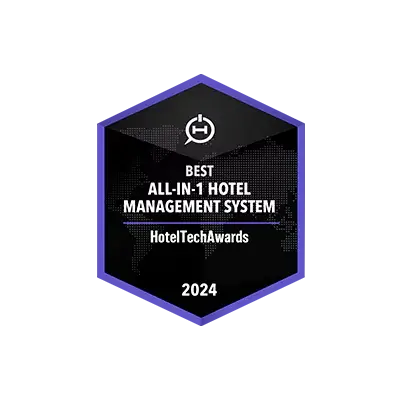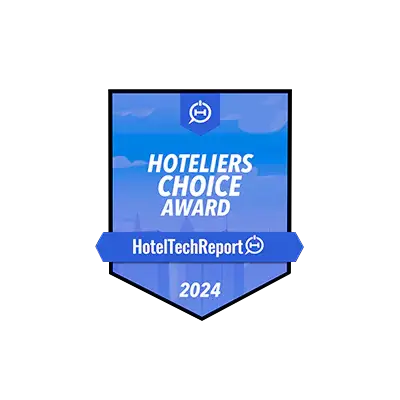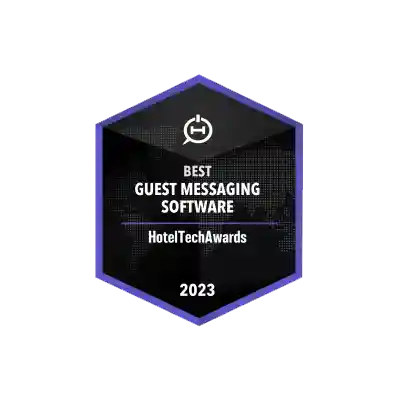
By Lana Cook
When deciding on a payment solution for your property, there are a lot of factors that come into play. One of the biggest concerns on hoteliers’ minds, of course, is the cost.
In pursuit of cost savings, many lodging businesses opt for a local payment solution that lacks integration, which can look good upfront but ultimately leads to costly errors, a poor guest experience, and lost revenue down the road. To set your property up for success, it’s crucial to consider the entire value of your payment solution and how it will affect your business in the long term.
Here, we look at the hidden value of an integrated payment solution and how it can help lodging operators improve the guest experience, eliminate manual errors, avoid lost revenue, and speed up reconciliation time.
The transaction risks with a non-integrated system
When a property’s payment system isn’t integrated, there is much more room for error. For instance, when a hotel receives a reservation, whether it’s through the booking engine or via an online travel agency (OTA), staff must manually enter payment details into the property management system (PMS).
Sounds simple enough; however, many variables are at play. What if the employee gets distracted and mistakes a six for a nine when entering the credit card number? Even the most detail-oriented employees can make data entry errors, especially when juggling multiple responsibilities. In the worst-case scenario, the guest may arrive to find their reservation canceled due to an invalid credit card number.
Upon arrival, your front desk agent must manually enter the amount into the payment terminal for the guest to pay. If in a rush or dealing with a sticky terminal, agents may accidentally forget or add an extra zero. These mistakes lead to a major headache when reconciling and can be costly for both the guest and the property.
Upon departure, the guest may encounter more problems. Staff may have to ask for the guest’s credit card again, causing a delay in checkout and poor guest experience. If the breakfast charge hasn’t been applied to the account yet, the agent will have to track it down – or put it through as a late charge, which leaves it vulnerable to a dispute.
In all of these scenarios, the costs to the hotel are high. The guest is inconvenienced and may become frustrated, ending the stay on a bad note. The employee may become flustered. And the hotel may be unable to collect all the charges it’s due.
With an integrated payment system, everything is connected. This includes the payment gateway that collects credit card details during online reservations, the PMS where reservation information is stored, and the payment terminal at the front desk that is used to process transactions. Because all the payment details are transferred from one system to another electronically and automatically, there are none of the risks of manual data entry. Throughout the guest’s stay and on to return stays, purchases and payment transactions are instantly and seamlessly synced to the guest profile. What is an integrated payment system?
During Passport 2023, Chad Brubaker, Senior Director of Product at Cloudbeds, spoke to the challenges of payments within the hospitality industry and how an integrated solution can help.
3 hidden costs of non-integrated payment technology
When hotels consider investing in an integrated payment solution, they often focus on the upfront costs of the technology. But what about the costs of not upgrading? Here are just a few to consider.
1. Manual payment entry errors
When data entry is performed manually, the error rate is one percent on average, according to Beamex. Typical errors include:
- Writing down credit card details wrong
- Misreading the account numbers
- Mixing up digits like 6 and 9
- Missing a number or accidentally adding an extra number
- Forgetting to ask for the expiry date
- Not recording the Card Verification Code (CVC) on the back of the card
These errors go directly to the bottom line. Without proper payment information, hotels are unable to collect deposits and other payments, and staff might even end up canceling valid reservations. They might undercharge guests or receive payment disputes, chargebacks, and related fees. Not to mention the labor costs involved in investigating and resolving errors.
One percent error rate
While a one percent error rate may not seem overly high, think of it this way. If a hotel processes an average of 50 payment transactions per day over a 30-day period, it will make 15 errors per month and 180 errors per year. If an error costs the hotel $100 on average, the total costs would add up to $18,000 per year – costs that could easily be avoided.
2. Wasted time
When payment systems aren’t integrated, hotel staff waste valuable time on tasks like:
- Manually entering credit card details into the payment terminal, online web portal, or PMS
- Following up on missed deposits
- Waiting for charges to come through from an outlet
- Correcting payment errors
- Processing and trying to collect on late charges
- Reconciling payments with guest profiles in the PMS
- Investigating and resolving disputed charges
These tasks can consume a disproportionate amount of a hotel team’s time without adding value to the business or the guest experience (read below how Dahl’s Motel saved 9 hours per month). They can also affect employee satisfaction, bogging down staff with tedious work, taking them away from positive interactions with guests.
3. Poor customer experiences
The costs of errors aren’t limited to the property. Guests feel the pain of a poorly integrated payment experience, including:
- Being kept waiting while payment information is entered or verified
- Having to be asked for payment methods multiple times
- Losing trust that their payment information is being kept secure
- Reputation damage in the form of bad reviews and lost business
- Overcharging or double-charging (and the awkward conversations that go along with resolving these issues)
Today’s travelers expect the payment experience to be simple, fast, and seamless. This frees them up to enjoy the fun parts of their trip.
11 benefits of an integrated payment solution
In addition to weighing the costs of a non-integrated payment system, hospitality businesses should also consider the benefits of an integrated payment system. These include:
A seamless guest experience. No need to track and report transactions across multiple platforms. Guest payment information is automatically transferred from the payment gateway to the PMS to the payment terminal.
More ways to pay. An integrated payment system allows hotels to capture more bookings by offering more payment options, including regional and global credit cards, digital wallets, PayByLink, and services like SEPA and Klarna.
Take payments virtually anywhere. Hotels can accept credit card payments from the booking engine, OTAs, and POS terminals or send a secure payment link to guests via email, SMS, or WhatsApp.
More revenue. Guest payment cards are automatically validated and pre-authorized, reducing invalid reservations.
Fewer invalid bookings. With automated deposit collection, hotels won’t miss a payment. If the credit card is declined, the system will alert staff, who can contact the guest to secure payment or put the room back on the market.
Speedy check-in and checkout. A modern payment solution will offer state-of-the-art payment terminals that support tap-to-pay, chip, swipe, and mobile wallet transactions, making paying on property a breeze.
No more manual entry errors. Automated data sharing means no more costly manual errors or time spent resolving payment issues.
No delays in posting charges. When the PMS is part of an integrated hospitality platform, charges in the restaurant and outlets are automatically posted from the POS (point of sales) system to the PMS.
Less reconciliation time. A payment terminal integrated with the property’s PMS allows access to all transaction data in one place, cutting down reconciliation time by up to 90 percent.
Data security. With a trusted technology provider, all payment data is stored in one place and is compliant with global security requirements.
Hospitality-focused support. If the provider specializes in the hospitality business, hotel teams have a direct line to the expertise and support they need to resolve issues quickly, win payment disputes, and prevent chargebacks.
Marcus Marcondes de Carvalho, Payments Risk Compliance Manager at Cloudbeds, compares using an integrated solution like Cloudbeds to other providers, explaining that “other providers will struggle to work with several business models and industries and will be unable to think of certain improvements product-wide that fit the industry. Since Cloudbeds is 100% in hospitality, we have customized our services and products to bring more value to lodging operators.”

How Dahl’s Motel saves over 9 hours per month and eliminates errors
Before Dahl’s Motel in Oroville, CA, upgraded to an integrated payments system, guests would present their card at the front desk upon arrival, and payments would be inputted manually.
This was a major pain point for the 21-room property because the process was time-consuming and prone to human error, General Manager Jasmin Wilson told Cloudbeds. Every month, she spent hours reconciling payments, transactions, and reservations to make sure that the property’s books were in order.
Since upgrading to Cloudbeds Payments, Dahl’s Motel has offered guests a quick and easy payment experience, from booking online to arrival and through to checkout. Everything is always in sync, and reporting is a breeze.
“The training process with my staff has been easy and intuitive,” Jasmin said. “Everyone loves how user-friendly and simple it is.” Meanwhile, her reconciliation time has been reduced from 10 hours to 15 minutes. “There are never any issues, and there are never any discrepancies,” she said.
It’s time to cut down on the costs of payments
Integrated payment systems are fast becoming the new normal at lodging businesses of all sizes, from property rentals and hostels to boutique hotels and small inns. It won’t be long before manually entering guests’ credit card details and reconciling payments are a thing of the past.
The sooner hotels adapt to the latest payment trends, the sooner they will begin realizing the benefits. This means offering guests faster and more convenient ways to pay, making life easier for team members, and unleashing the hidden cost savings of an integrated payment solution.

